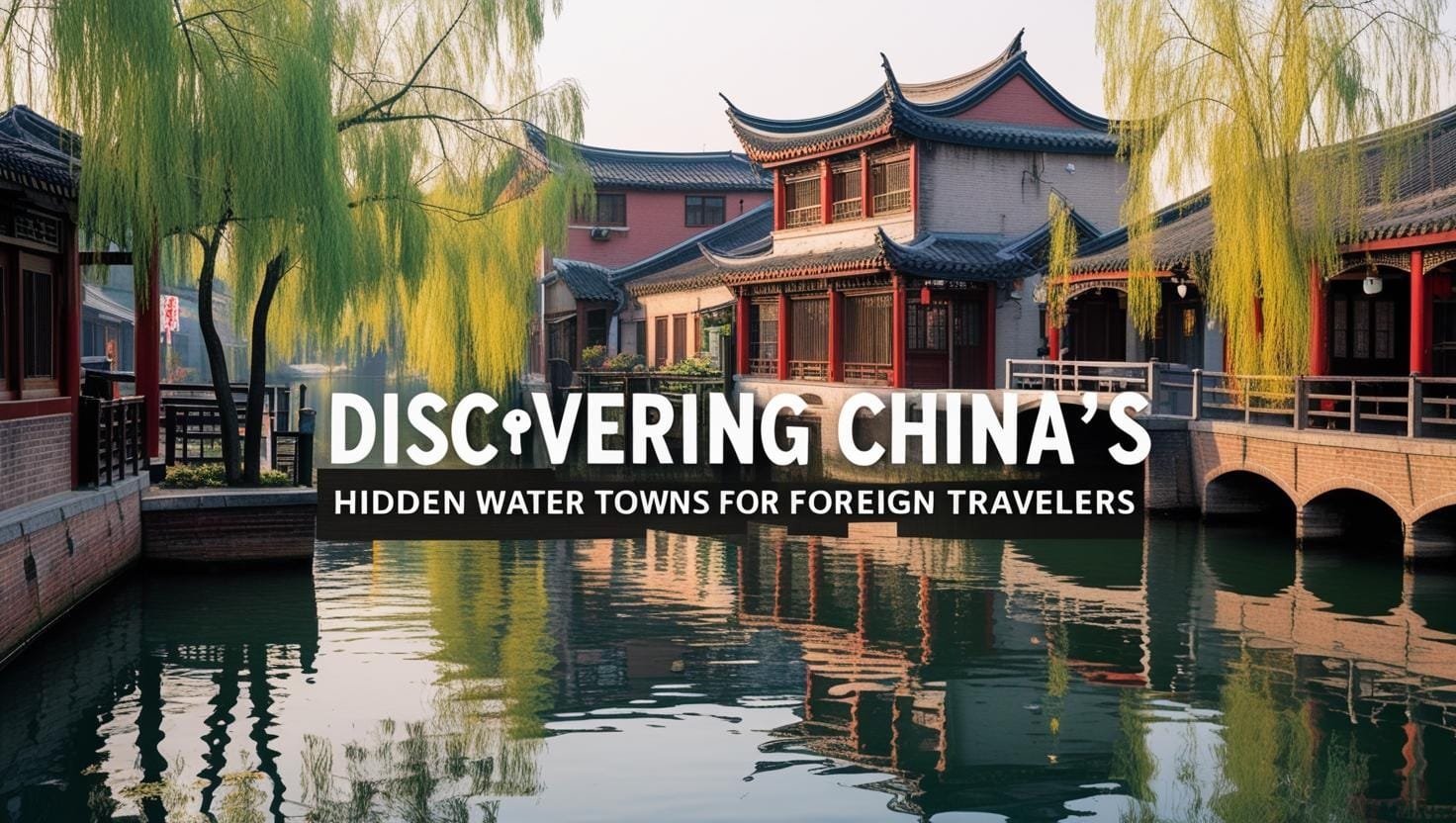“`html
Discovering China’s Hidden Water Towns for Foreign Travelers
Imagine stepping into a world where ancient canals replace bustling streets, where the gentle lapping of water against stone houses is the soundtrack to daily life. That’s the magic of China’s water towns, serene escapes that offer a glimpse into the country’s rich cultural heritage. For those seeking China travel experiences beyond the well-trodden tourist paths, these hidden gems provide an unforgettable adventure. Here at jusha.travel, we love sharing tips to make your China journey unforgettable, and today, we’re diving into the enchanting realm of China’s water towns – perfect for those seeking offbeat destinations.
Why Explore China’s Water Towns?
China’s water towns offer a unique blend of history, culture, and natural beauty. Unlike the sprawling metropolises, these towns retain a slower pace of life, allowing visitors to immerse themselves in traditional Chinese customs and architecture. The picturesque canals, ancient bridges, and charming teahouses create a postcard-perfect setting that’s ideal for cultural exploration. For budget-conscious travelers, many water towns also offer incredible value, making them perfect for backpacking China. The idyllic scenery makes for great scenic travel and photo opportunities!
Top Hidden Water Towns to Visit
While some water towns like Zhouzhuang and Tongli are well-known, let’s uncover some lesser-known treasures:
- Luzhi (甪直): Located near Suzhou, Luzhi boasts a history spanning over 2500 years. Known for its well-preserved ancient bridges and serene canals, Luzhi offers a tranquil escape from the city. Be sure to try the local specialty,甫里蹄 (Fǔlǐ tí), a braised pork knuckle.
- Mudu (木渎): Situated close to Suzhou, Mudu is famous for its exquisite gardens and connections to Emperor Qianlong. Wander through Hongyin Villa, a classic example of Chinese garden design, and sample Biluochun tea, a local green tea known for its delicate flavor.
- Xitang (西塘): While Xitang has gained some popularity, it still retains its charm. Characterized by its covered walkways and vibrant nightlife, Xitang offers a mix of tranquility and lively atmosphere. Enjoy a boat ride along the canals and savor local snacks like Qianniang’s Dumplings.
Tips for Backpacking China’s Water Towns
Backpacking China and exploring these water towns can be an incredibly rewarding experience. Here are a few tips to help you make the most of your adventure:
- Learn Basic Mandarin: While English is becoming more common in tourist areas, knowing basic Mandarin phrases will greatly enhance your interactions with locals.
- Travel Off-Season: To avoid crowds and enjoy lower prices, consider visiting during the shoulder seasons (spring or autumn).
- Use Local Transportation: Take advantage of local buses and shared taxis to get around. They are affordable and offer a glimpse into daily life.
- Book Accommodation in Advance: While many water towns offer guesthouses and hostels, booking in advance is recommended, especially during peak season.
- Embrace the Local Cuisine: Don’t be afraid to try local specialties. Water towns are known for their fresh seafood, river delicacies, and unique snacks.
The Cultural Significance of Water Towns
Water towns are not just pretty places; they are living museums that reflect China’s rich cultural heritage. Historically, these towns thrived as centers of trade and commerce, with canals serving as vital transportation routes. The architecture, with its traditional courtyard houses and intricate carvings, showcases the artistry and craftsmanship of past generations. Exploring these towns provides a unique opportunity for cultural exploration and understanding the traditions that have shaped China for centuries.
Experiencing Scenic Travel in Water Towns
The beauty of China’s water towns lies in their serene atmosphere and picturesque landscapes and makes a great scenic travel destination. Imagine gliding along a canal on a traditional sampan boat, the gentle sway of the water lulling you into a state of tranquility. The reflections of ancient buildings shimmering on the water’s surface create a mesmerizing scene that’s perfect for photography and contemplation. Whether you’re strolling along cobblestone streets, sipping tea in a riverside teahouse, or simply enjoying the peace and quiet, the water towns offer an escape from the hustle and bustle of modern life.
Conclusion
Discovering China’s hidden water towns is an enriching experience that allows travelers to connect with the country’s history, culture, and natural beauty. Whether you’re a seasoned backpacker or a curious traveler seeking offbeat destinations, these serene escapes offer a unique perspective on China. As you plan your China travel, consider adding these hidden gems to your itinerary and immerse yourself in the tranquility and charm of these living museums. Visit jusha.travel for more China travel inspiration!
What are your favorite hidden gems in China? Share your thoughts in the comments below!
“`

